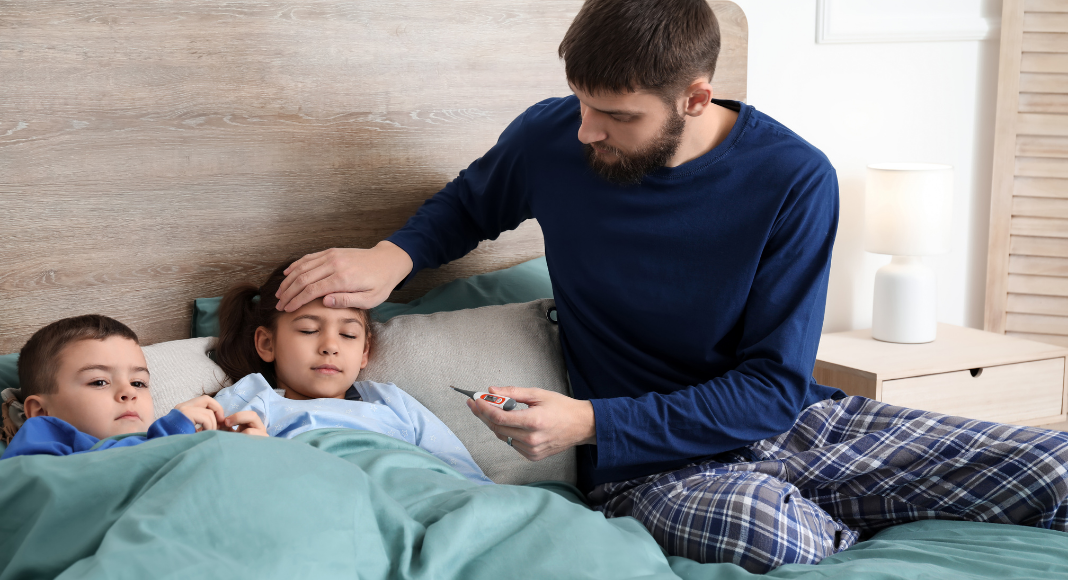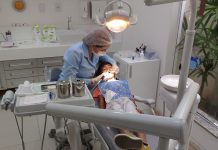 Recently, Birmingham Mom Collective got to have a conversation with Dr. Justyn Millar, a pediatric nurse practitioner at Urgent Care for Children, about fevers. This talk was so timely, as we’re right in the middle of winter sickness season.
Recently, Birmingham Mom Collective got to have a conversation with Dr. Justyn Millar, a pediatric nurse practitioner at Urgent Care for Children, about fevers. This talk was so timely, as we’re right in the middle of winter sickness season.
About Dr. Millar
Dr. Millar got her doctorate at the Medical University of South Carolina. She then moved to Birmingham with her family. She currently has two preschool-aged sons and is expecting her third baby this spring, so she is well aware of what the cold/flu season is like as a mom! She’s been with Urgent Care for Children for four years, and you can usually find her at either the Vestavia, 280, or Trussville locations.
What Exactly is a Fever?
First of all, it’s important to remember that fevers are not bad! They are simply the body’s immune response to a foreign pathogen. However, we do want to make sure we take good care of our kids whenever they get sick, so if you have an infant who is two months or younger, be sure to seek out immediate medical care for any temperature of 100.4 or higher. For older children, there’s typically not a reason to be concerned if their temperature is under 101.
For the most accurate temperature reading for kids, you can use an oral or temporal thermometer. However, if you have a baby who is under two years old, a rectal reading will be the most accurate.
What Do I Do When My Kid Has a Fever?
If your non-infant child has a fever, listen to your mom instinct. If he or she is acting normal, eating well, and staying hydrated, watch them for a day or two before getting too concerned. However, if you are worried due to abnormal behaviors or symptoms (sore throat, headache, congestion, etc.), a professional medical evaluation can be a good idea.
Medication Cycling
If you are trying to treat your child’s fever and symptoms at home and he is six months old or older, then cycling acetaminophen and ibuprofen can be helpful. Generally this involves giving your child one of these medications, then giving the other one three hours later. Continue as long as needed or until your child’s physician gives you another treatment plan. If your child is under six months but over two months old, you should stick to only acetaminophen with your pediatrician’s approval.
Returning to School
Your children should be symptom free before returning to school or childcare. Also, make sure they haven’t had a fever for at least 24 hours without being given fever-reducing medication. When those criteria are met, your child should no longer be contagious and can safely be around other children again.
Urgent Care For Children
If you take your child to an Urgent Care for Children facility for a fever, they may be tested for an array of sicknesses. The so-called “winter panel” includes a strep test, Covid test, and flu test, and it’s very popular right now. If these rapid tests come back negative and your provider still suspects something, they can send off your child’s samples to get PCR testing done.
If your child is sick with a virus, there isn’t much you can do. However, knowing what is going on is helpful so parents can discuss appropriate expectations and treatments with their healthcare provider.
Since Urgent Care for Children is open 365 days a year, they are a great option for those weekend and after hours sick visits. They’ll even fax your child’s appointment notes to their pediatrician to ensure proper continuation of care!
Got ten minutes? Catch the full interview with Dr. Millar here!











